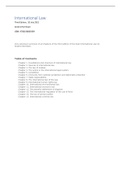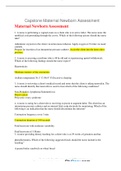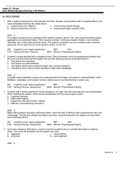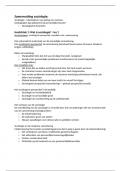Resume
International Law - Henriksen - Summary - third 3rd edition - 2021
- Cours
- Établissement
- Book
Summary of the book International Law, by Anders Henriksen. Very exstensive, got a good grade making this summarty. - third 3rd edition - 2021, English written.
[Montrer plus]













